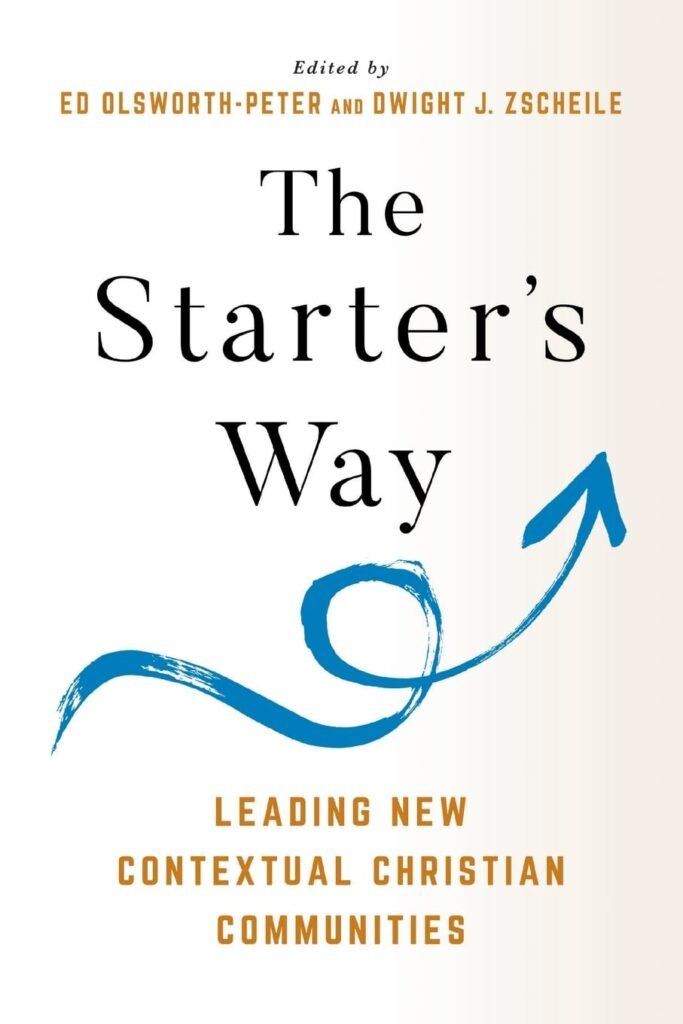the starter’s way is a new book edited by ed olsworth-peter and dwight zscheile. ed was the national advisor on pioneer ministry for the church of england and now teaches at st melitus college and dwight is a professor at luther seminary. in their own different contexts each has a passion for innovation around contextual mission held within the frame of a wanting to see a mixed ecology of church. contextual mission sounds like jargon but what it is really getting at is the idea that there might be new churches, new communities that engage really well with the place they are in and the culture of the people there (the context).

it’s a lovely book. it’s also easy to read. the heart of what it’s about is that 15 core principles are identified and there is a short chapter on each. principle isn’t quite the right word but i can’t think of what is – quality maybe. they are things like noticing, discerning, being hospitable, being resilient. so perhaps they are postures. they relate to ways of being in the world to inhabit. the idea being that if you can live in this way in a context as you listen and notice and adapt you will be able to discern what god is doing and innovate or pioneer. it’s a very different mindset to thinking you need to know the right method to do something. they are grouped into spiritual foundations, inner and outer practices.
the clever part is that ed has mapped these onto a framework the church of england uses for criteria for licensed ministries. the original document for pioneers was so complicated that i counted up around 144 things you were supposed to be fulfilling which felt exhausting. ed’s claim is that these 15 do the trick nicely. i would love to hear a reaction to this from the church of england at some point because this seems a whole lot better and more manageable. i was with pioneer ordinands this weekend and i showed all of them the book for that very reason. i actually think these qualities are pretty good for all those training but i guess that’s a different discussion. that is not to say it is a church of england book – far from it. it will be helpful to anyone but it’s neat that it does that work.
i have written one if the chapters which is on adapting, which i enjoyed writing. in the weird world of publishing time lines i wrote it years ago it seems but i still like it which is a relief! i think the whole thing is a very good and welcome book. well done ed and dwight!
i am encouraged by some of the writing and thinking that has been coming out recently. post covid it felt like the church of engalnd at least (and perhaps others) was hyper anxious and had retrenched on some of the creative and imaginative ministries that had emerged through pioneering and fresh expressions. in many ways it felt as though all the learning around contextual mission was being largely ignored in favour of some pragmatic unproven solutions with particular taste cultures and theologies of the church in vogue. this has been compounded by the funding processes at the centre of the church of england who only seemed to want to resource ministry that is at the more safe end of things – replication of what we have already got rather than pushing any further out, things that give quick fixes rather than deep culture change. it’s been a very odd skewing factor in the church landscape as it has forced dioceses to dance to its tune and language. people have been told they won’t get money if they use language of pioneering and fresh expressions which is truly extraordinary in my view. but gently i think there is at least the potential of a resurgence of creative imaginative practice. being the people of god is a similarly expansive book in its horizon.

